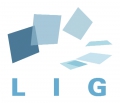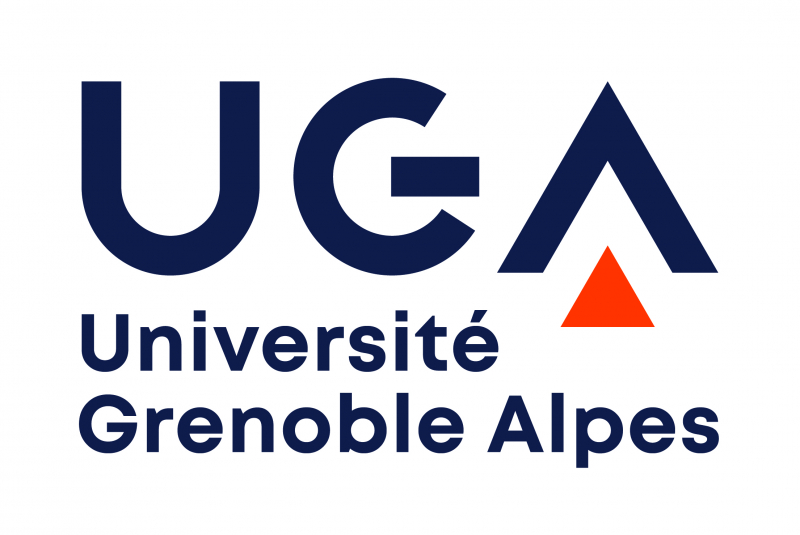LIG (UMR 5217)
Laboratoire d'Informatique de Grenoble
(Grenoble Informatics Laboratory)
| LIG |
 |
|
| Lab home-page : http://www.liglab.fr/ | ||
| Activity report : LIG 2006-2009 (pdf, 1,9Mo) | ||
| AERES evaluation report : Report May 2010 (pdf, 465,04 ko) | ||
| Publications'URLs : LIG's publications | ||
| Software, interaction, knowledge, infrastructure, ambient intelligence, sustainable IT | ||
| Themes | The scientific and technological foundations of Ambient Computing, with special attention to the emerging societal problem of sustainability, developing the concepts, theorems, methods, software, and tools required for ubiquitous and pervasive computing and services in a manner that accommodates the environmental constraints and the limited resources of the planet. | |
| Highlights and distinctions |
Marie-Christine Rousset (2005) Yves Demazeau (2010) |
ECCAI Fellow |
| Denis Trystram (2011) | Recipient of the Google research award | |
| Hubert Garavel (2011) | Recipient of the Gay Lussac-Humboldt prize | |
|
James Crowley (2011), Marie-Christine Rousset (2011), Denis Trystram (2010) |
Institut Universitaire de France (IUF) - senior members | |
| Laurence Nigay (2004) | Institut Universitaire de France (IUF) - junior member | |
| Joelle Coutaz (2007) | "Honorary Degree of Doctor of Science" of University of Glasgow (Honoris Causa) | |
| AERES assessment | The Grenoble Informatics Laboratory assessment is A+ (2010). The LIG has established a position of national prominence based on clear vision of the future of informatics supported by the research of a number of high quality research teams. The LIG management team has succeeded in creating a dynamic environment uniting the majority of the laboratory around a common project based on this vision. The themes addressed in this project, identified under the banner of ambient informatics, are highly relevant and stimulating for the scientific teams of the laboratory. Activities of LIG represent over 300 active contracts with an average renewal of approximately 50 contracts per year, and an overall budget of 6 million euros. | |
| Faculty | 130 | |
| Researchers | 46 | |
| Habilitation | 84 | |
| "Produisants AERES" | 169 | |
| PhD students | 179 | |
| Publications | Journals : 335 | |
| Conferences: 1407 | ||
|
Funding K€ Mean value per year |
6 000 000€ | |
The activities of LIG range from contributions to novel and emerging scientific paradigms to collaborative research and industrial innovation. Our major ICT Research areas are:
- Software infrastructures: from network to data. The ambition is to study the software infrastructures that are fundamental to the emergence of an informatics with resources widely distributed, at various scales, from embedded equipment (e.g., sensors, micro- and nano-controllers) to machine grids at the Internet scale.
- Software: foundations, models and engineering. The expertise of LIG covers a wide spectrum of research in software, from computational models and programming languages to methods and tools for modeling, implementation, verification, validation and management of high quality and trustworthy software.
- Interaction: perception and action. Our goal is to improve the computational models and to integrate the user into the development process. This requires a broad expertise from the cognitive and social sciences, as well as from signal processing and mathematical and physical models. LIG research concerns new theoretical frameworks for supporting and creating novel forms of robust and flexible interaction raised by the challenges of Ambient Computing.
- Knowledge: extraction, transformation, usage. Information technologies have enabled the production of a very large quantity of resources. Access to such resources creates a growing need for information extraction and interpretation methods, for knowledge processing, and for the design of cooperative systems. Research conducted at LIG ranges from data mining for knowledge discovery, representation techniques and reasoning mechanisms to intelligent multi-agent systems and the semantic web.


 Sign in
Sign in














